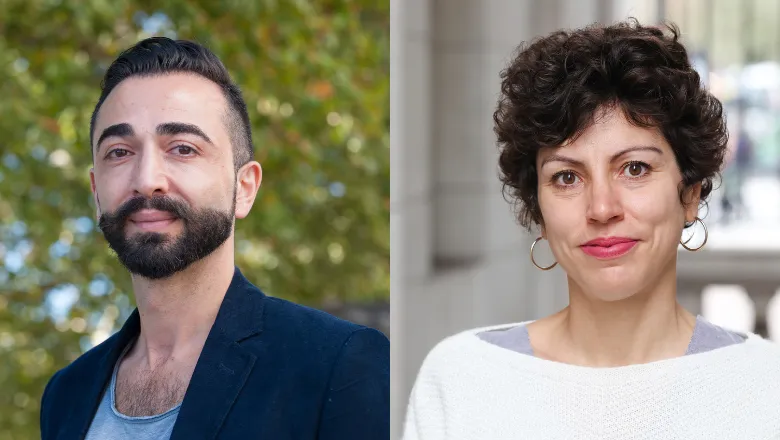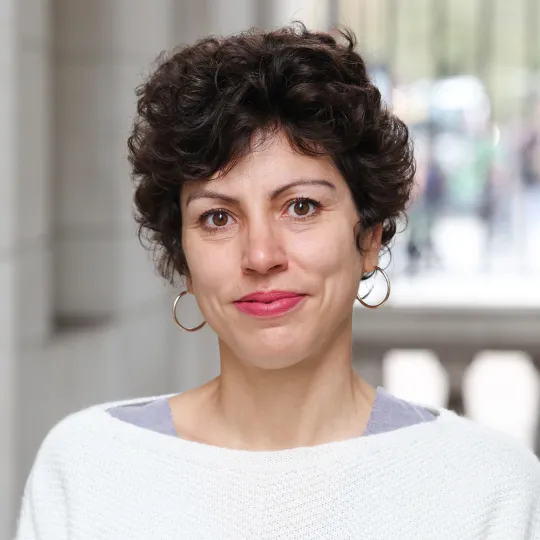I am excited to spend six months as a Fellow of the Global Cultures Institute. With its interdisciplinary and comparative reach, the Institute will offer me an ideal intellectual environment to develop my research project 'Colonial and anticolonial language pedagogies: Europe and the Horn of Africa'.
Dr Sara Marzagora, Senior Lecturer in Comparative Literature
07 May 2025
Global Cultures Institute announces Fellows for 2025-26
Dr Sara Marzagora and Dr Reza Zia-Ebrahimi will be undertaking research fellowships with the Global Cultures Institute.

Dr Marzagora, Senior Lecturer in Comparative Literature in the Department of Languages, Literatures and Cultures, will be using the fellowship to develop a funding application for her research project, Colonial and anticolonial language pedagogies: Europe and the Horn of Africa.
The project interrogates the making of the modern world from the vantage point of Afro-European language pedagogy, demonstrating the centrality of the Afro-European language classroom as a globalised space where race, migration, and imperialism were pedagogically encoded, reproduced, and contested. The research combines (and contrasts) a macro-history of state intervention in language pedagogies with a micro-history of language teachers’ biographies and of the day-to-day life of the language classroom.
Drawing on government archive, university policies, syllabi, exercise books, grammars, assignments, and other educational material, Dr Marzagora aims to shed light on the role of language teachers in the Afro-European intellectual encounter of the early twentieth century.
Through this project, Dr Marzagora will also focus on the interwar contestations over language between independent Ethiopia and the three surrounding colonial powers: France, Britain and Italy
Dr Zia-Ebrahimi, Reader in the History of Nationalism and Race in the Department of History, will focus on Constructing the Internal Enemy: Existential Threat in Conspiracy Beliefs and Racial Domination – An Interdisciplinary Analysis.
This project investigates and theorises the relationship between conspiracism and racism as interconnected strategies of marginalisation, exclusion and dehumanisation.
Conspiratorial beliefs centred around the existential threat posed by racialised minorities, particularly Jews and Muslims, have a history in Western Europe going back to at least the post-Reconquista period on the Iberian Peninsula. By combining expertise from different periods and drawing on Critical Race Theory, antisemitism studies, and postcolonial theory, the project will address critical questions about the role of conspiracy theories in ascribing racial characteristics; the socio-historical factors that allow for conspiratorial discourse to become racialised; and how these ideas are absorbed by state structure to legitimise surveillance, political violence, and genocide.
Dr Zia Ebrahimi will also produce a website with key data, sources, and oral history case studies and interviews with victims of Islamophobic conspiracy thinking.
This project is central to my analysis of race. I am therefore delighted that it has been selected for a Global Cultures Institute Fellowship as this will allow me to free myself from departmental responsibilities for a full term to focus entirely on developing an Arts & Humanities Research Council application. This will significantly increase my chances of getting this project off the ground.
Dr Reza Zia-Ebrahimi, Reader in the History of Nationalism and Race


